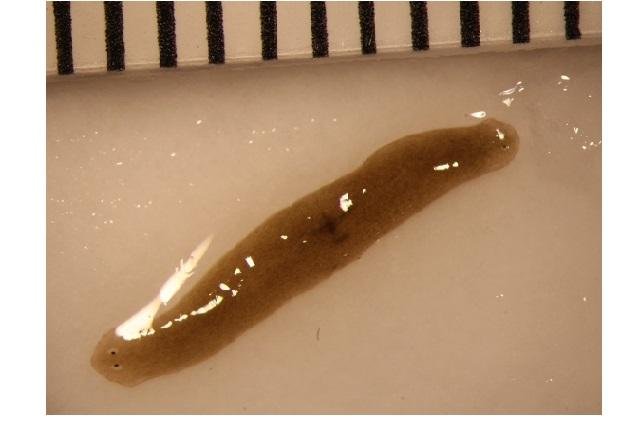One of the amputated flatworms sent to the space station came home with two heads. Photo by Junji Morokuma/Allen Discovery Center/Tufts University
June 9 (UPI) -- Understanding the impact of space travel on human health remains a primary goal for NASA. Scientists have used a number of animal models to measure the effects of microgravity on biological mechanisms.
In a recent study, scientists used flatworms to determine how microgravity influences regenerative health.
Planarian flatworms are appreciated by scientists for their remarkable ability to repair and regenerate tissue after amputation. Scientists at Tufts University sent several flatworm specimens into space to see how microgravity impacts their ability to regenerate cells.
"During regeneration, development, and cancer suppression, body patterning is subject to the influence of physical forces, such as electric fields, magnetic fields, electromagnetic fields, and other biophysical factors," Michael Levin, a professor of biology at Tufts, said in a news release. "We want to learn more about how these forces affect anatomy, behavior and microbiology."
In 2015, several Dugesia japonica flatworms flew to the International Space Station aboard SpaceX's Dragon cargo ship. Each worm was contained in a small capsule featuring a combination of air and water. Half the worms were amputated, half were whole.
A group of control worms were kept in similar conditions on Earth. When the flatworms returned from space, researchers compared the specimens to the control worms. The worms were analyzed immediately upon their return and monitored for 20 months after.
A series of behavioral, microbiological, and morphological tests revealed a variety of differences between the two groups of worms. The most startling difference: one of the space-traveling amputees regrew a double head.
When scientists sliced off both ends of a worm returned from space, the fragment regrew heads on both ends -- proof the impacts of space travel on flatworm regeneration are permanent.
Researchers also found worms returning from space reacted differently to aqueous conditions and light. Tests showed space travel altered the microbiota and metabolism of the test worms.
Scientists shared the results of their flatworm study in the journal Regeneration.















